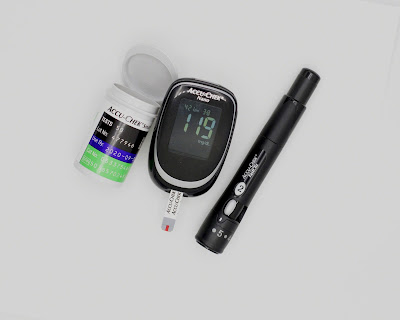Frequently Asked Question About Hyperinsulinemia
What is the main cause of hyperinsulinemia?
Hyperinsulinemia is a condition characterized by elevated levels of insulin in the blood. It is most commonly caused by insulin resistance, which is a condition in which the body's cells become less sensitive to insulin over time. This leads to an increase in insulin production by the pancreas in an attempt to maintain normal blood sugar levels.
Hyperinsulinemia can also be caused by other factors, such as:
Pancreatic tumors: Certain types of tumors in the pancreas, such as insulinomas, can overproduce insulin, leading to hyperinsulinemia.
Certain medications: Certain drugs, such as glucocorticoids, can increase insulin resistance and lead to hyperinsulinemia.
Endocrine disorders: Certain endocrine disorders, such as polycystic ovary syndrome (PCOS) and acromegaly, can cause hyperinsulinemia by disrupting the normal regulation of insulin secretion.
It is important to note that hyperinsulinemia is often seen in individuals with type 2 diabetes and is considered a risk factor for the development of this condition.
What are the causes of hyperinsulinemia hypoglycemia?
Hyperinsulinemic hypoglycemia is a condition in which the body produces too much insulin, leading to low blood sugar (hypoglycemia). The following are the main causes of hyperinsulinemic hypoglycemia:
Insulinoma: An insulinoma is a rare type of tumor that forms in the pancreas and produces excess insulin. This can cause episodes of hypoglycemia, especially after eating.
Congenital hyperinsulinism: Congenital hyperinsulinism is a rare genetic disorder that causes the pancreas to produce too much insulin, leading to hypoglycemia.
Surgical complications: In some cases, surgical procedures, such as gastric bypass surgery, can cause the body to produce too much insulin, leading to hypoglycemia.
Reactive hypoglycemia: Reactive hypoglycemia, also known as postprandial hypoglycemia, is a condition in which a person's blood sugar drops too low after eating. This can be caused by the overproduction of insulin in response to a meal.
Certain medications: Certain medications, such as sulfonylureas, which are used to treat diabetes, can cause the pancreas to produce too much insulin, leading to hypoglycemia.
It is important to consult a healthcare professional for proper diagnosis and treatment of hyperinsulinemic hypoglycemia.
What are the main causes and treatments for hyperinsulinemia?
Hyperinsulinemia is a condition characterized by elevated levels of insulin in the blood. The main causes of hyperinsulinemia include:
Insulin resistance: Insulin resistance is the most common cause of hyperinsulinemia. It occurs when the body's cells become less sensitive to insulin over time, leading to an increase in insulin production by the pancreas.
Pancreatic tumors: Certain types of tumors in the pancreas, such as insulinomas, can overproduce insulin, leading to hyperinsulinemia.
Certain medications: Certain drugs, such as glucocorticoids, can increase insulin resistance and lead to hyperinsulinemia.
Endocrine disorders: Certain endocrine disorders, such as polycystic ovary syndrome (PCOS) and acromegaly, can cause hyperinsulinemia by disrupting the normal regulation of insulin secretion.
Treatment for hyperinsulinemia depends on the underlying cause and can include:
Lifestyle changes: Making changes to your diet and increasing physical activity can help improve insulin sensitivity and lower insulin levels.
Medications: In some cases, medications, such as metformin or thiazolidinediones, may be prescribed to improve insulin sensitivity and lower insulin levels.
Surgery: If a pancreatic tumor is the cause of hyperinsulinemia, surgery may be necessary to remove the tumor.
Management of underlying conditions: Treating underlying conditions, such as polycystic ovary syndrome (PCOS) or acromegaly, can help improve insulin levels.
It is important to consult a healthcare professional for proper diagnosis and personalized treatment of hyperinsulinemia.
Does glucose increase insulin production?
Yes, glucose can increase insulin production. Insulin is a hormone produced by the pancreas that helps regulate blood sugar levels. When you eat a meal, your digestive system breaks down carbohydrates into glucose, which then enters your bloodstream. As your blood glucose levels rise, your pancreas releases insulin to help move the glucose into your cells, where it can be used for energy.
Insulin acts as a key that unlocks the doors of your cells, allowing glucose to enter. The more glucose in your bloodstream, the more insulin your pancreas will produce to remove it. This helps to keep your blood sugar levels within a healthy range and prevent them from becoming too high or too low.
It is important to note that insulin resistance, a condition in which your cells become less sensitive to insulin, can also contribute to elevated insulin levels. In this case, even though your cells are resistant to insulin, your pancreas will continue to produce more insulin in an attempt to keep blood sugar levels under control. This can lead to hyperinsulinemia, a condition characterized by elevated insulin levels in the blood.
Thanks For Visit Be Healthy, Be Happy ,Enjoy Your Life By Author





Post a Comment